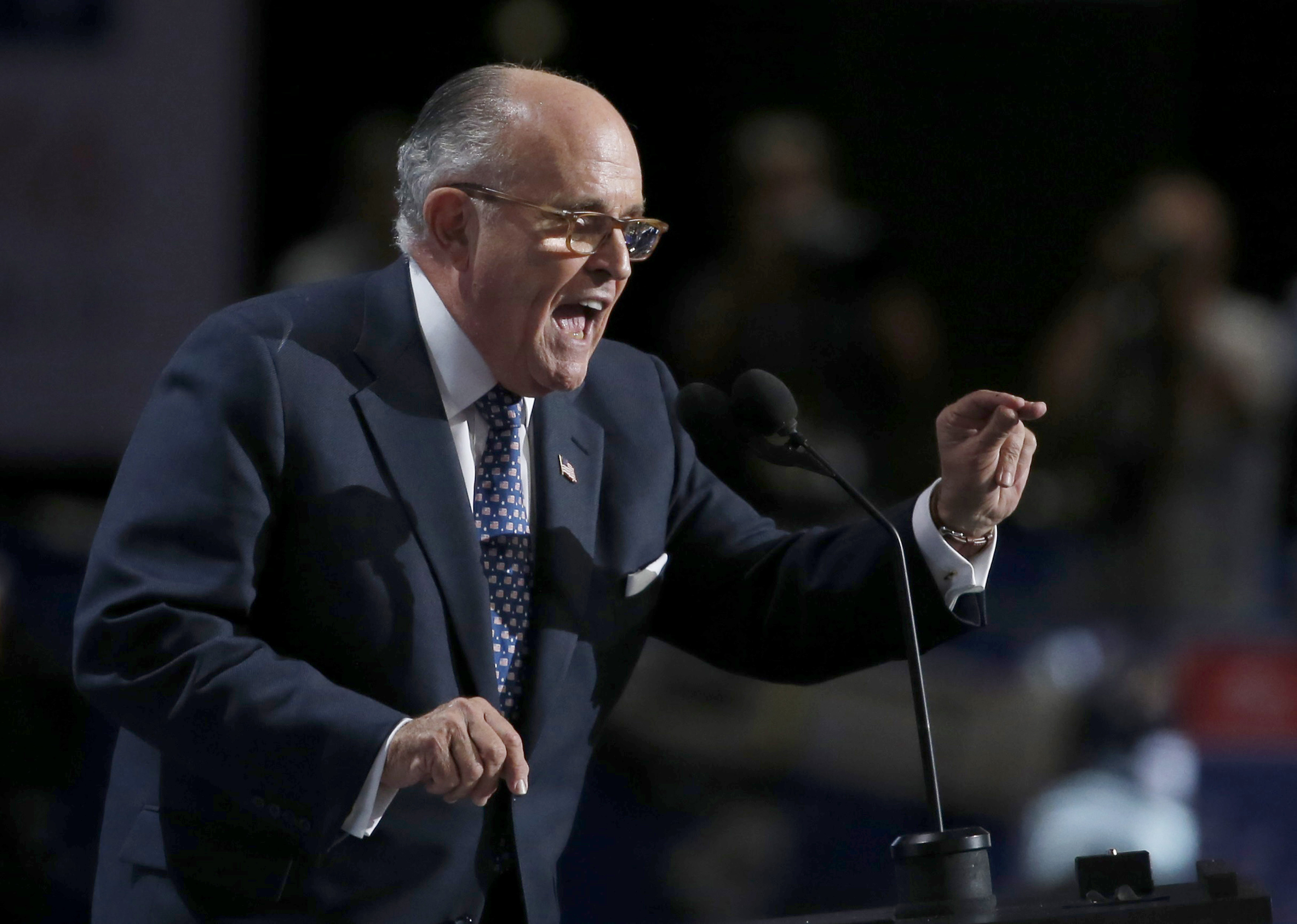How Rudy Giuliani captured America's fractured spirit
And why Giuliani may be a model for Trump


A free daily email with the biggest news stories of the day – and the best features from TheWeek.com
You are now subscribed
Your newsletter sign-up was successful
"What I did for New York, Donald Trump will do for America."
So said former New York City Mayor Rudy Giuliani in the best speech delivered at the Republican National Convention with no known paragraphs lifted from Michelle Obama.
As the Republican congressional leadership and 2016 GOP also-rans descend on Cleveland, it is unlikely any of them will capture the mood as well as Giuliani on Monday night. After all, we are living in a fractured climate similar to the one that allowed law-and-order Republicans to be elected mayor of America's two largest cities, New York and Los Angeles, in the early 1990s.
The Week
Escape your echo chamber. Get the facts behind the news, plus analysis from multiple perspectives.

Sign up for The Week's Free Newsletters
From our morning news briefing to a weekly Good News Newsletter, get the best of The Week delivered directly to your inbox.
From our morning news briefing to a weekly Good News Newsletter, get the best of The Week delivered directly to your inbox.
Giuliani's rise was made possible by Bernie Goetz, Crown Heights, Rodney King, and the Los Angeles riots. There was justified fear and anger about violent crime, as well as less justifiable racial demagoguery on all sides.
Fast forward to 2016, when an angry and jittery Republican primary electorate spurned its political class and turned instead to Donald Trump. Unarmed black men are being killed by police under disputed, sometimes quite troubling, circumstances. Police officers are being gunned down in the streets by people purposefully targeting law enforcement.
There is an escalating rhetorical war over the phrases "black lives matter," "blue lives matter," and "all lives matter."
These are genuinely frightening and enraging events. Even insofar as the overall trends are exaggerated, there was still a spike in violent crime (including murders) last year, an increase in illegal immigration, and a number of high-profile terrorist attacks.
A free daily email with the biggest news stories of the day – and the best features from TheWeek.com
Especially as it relates to crime, things are still better than they were in the early 1990s. Major cities are less dangerous than they were in 1968, another year when race, crime, and presidential politics collided. The current trajectory, however, is rightly disconcerting.
Given the racial disparities involved, it is easy for these legitimate concerns to bleed into something uglier. That was true 20 years ago and it remains true today.
When Rand Paul considered a presidential run, conservatives who disagreed with him on foreign policy and liberals who disagreed with him on everything else believed he could be undone by unveiling things similar to his father's racially incendiary newsletters from the 1990s.
To paraphrase Lee Atwater, they would make the "Ron Paul Survival Report" Rand's running mate.
Instead Paul, like his father in both his Republican presidential campaigns, did the opposite. The Kentucky senator advocated criminal justice reform and worried about what impression voter ID laws were leaving with African-American voters. He went to Detroit channeling Jack Kemp and championing enterprise zones that make it easier to create businesses and jobs in the inner city.
Paul went nowhere in the Republican primaries, dropping out after a dismal showing in Iowa. Trump, speaking too carelessly about rapists from Mexico, boasting that he would never cede his microphone to Black Lives Matter protesters, engaging in minimal direct minority outreach, is now the Republican nominee for president.
In other words, Paul ran on libertarianism without racial polarization and lost. Trump embraced the racial passions of his time without libertarianism and won. Giuliani endorsed Trump enthusiastically, even though Trump has expressed views about the Iraq war that once prompted America's Mayor to denounce the elder Paul.
Giuliani may be a model for Trump. He sidelined the social issues and values questions that divide whites, focusing instead on the threats to order and public safety that united them. He prevailed in a diverse electorate because whites voted as monolithically as other groups.
There is a big difference between helping make New York City less dangerous, even if in a way that was controversial and perhaps flawed, and publishing a crackpot newsletter. But neither would have been successful without many Americans — especially, though not exclusively, white ones — feeling their country was coming apart.
It's no accident that during a speech on the theme of making America safe again, Giuliani asked what happened to the racial unity Barack Obama once promised without mentioning the president by name. Much of blue-state and black America still see Obama as a force for that unity, fighting for sanity against those who needlessly whip up fears about race and crime. To the other side, Obama is the divider-in-chief leaving us in harm's way.
The more Americans feel like they are living in pre-Giuliani New York, the better Trump's chances.
W. James Antle III is the politics editor of the Washington Examiner, the former editor of The American Conservative, and author of Devouring Freedom: Can Big Government Ever Be Stopped?.
